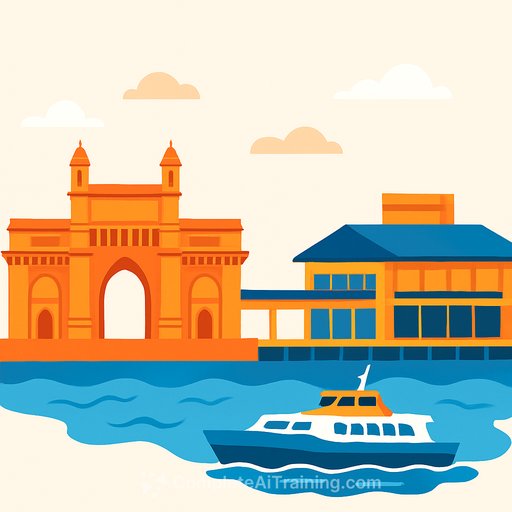Supreme Court Approves Rs 229-Crore Passenger Water Terminal Project Near Gateway of India, Mumbai
The Supreme Court has given the green light to the Rs 229-crore Passenger Water Terminal (PWT) project located near the Gateway of India in Colaba, Mumbai. The project aims to improve waterway connectivity between Colaba, Navi Mumbai, Mandvi, and Alibaug, significantly cutting travel time.
After hearing arguments from the Clean and Heritage Colaba Residents Association and other local residents, the bench comprising Chief Justice Bhushan R Gavai and Justice K Vinod Chandran declined to interfere with the Bombay High Court's earlier judgment. The High Court had upheld the Maharashtra government's approval of the project near Radio Club in Apollo Bunder.
Concerns Raised by Residents
The residents' association raised objections about the lack of environmental clearances from the State Environment Impact Assessment Authority and the central government. They also expressed concerns that the jetty, capable of handling 20 boats simultaneously, would lead to severe congestion in the area.
Government's Response
Solicitor General Tushar Mehta clarified that the jetty should not be confused with a port, which requires extensive infrastructure for cargo handling. The High Court's decision followed a principle of sustainable development, balancing progress with environmental safeguards.
Mehta also addressed concerns about the jetty's proximity to the heritage Gateway of India. He pointed out that opposition stemmed from a "not in my backyard" attitude. The project promises efficient water transport, cutting travel time by about one-third compared to current routes.
Judicial Remarks and Wider Impact
Chief Justice Gavai recalled a previous petition opposing the project that was dismissed, emphasizing that Mumbai's population lives in diverse areas, not only along the sea-facing localities of Colaba.
The Supreme Court's approval is seen as a go-ahead for the Maharashtra Maritime Board and state government to proceed with construction. Ports Minister Nitesh Rane highlighted the project's benefits, including reducing traffic congestion and providing modern, safe sea travel facilities.
- The terminal will feature a waiting lounge, ticket counters, administrative offices, and parking facilities.
- The existing jetty will be phased out gradually as the new terminal becomes operational.
This development marks a significant infrastructure upgrade for Mumbai's waterfront transport system, with potential positive effects on commuter convenience and urban traffic management.
Your membership also unlocks:





